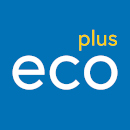
Carbon Cycle Circle
Issue
Is it possible to organize the use of plastics in society according to the circular economy model? Which actors have to work together to achieve the ambitious goals of the EU plastics strategy?
Approach
A single company, but also the payers working together in a single value chain, cannot bring about the necessary transformations alone. In order to overcome these previously existing system limits, the Plastics Cluster played a leading role in founding the “Österreichischer Carbon Cycle Circle” (ÖCC2), an association of players, experts and pioneers from the plastics industry who are pursuing the common goal of closing the carbon cycle and thereby meeting the goals of the EU’s “Green Deal” as well as the Paris climate goals and the Sustainable Development Goals (SDGs) of the United Nations.
In order to develop the basis for this, several projects were started, through which a common thread runs. As part of the “Facts Matter” project, it was first ascertained what quantities are actually being discussed: How much plastic is produced in Austria, how much is processed, imported and exported? What ends up in the trash? A methodology was developed that reconstructs all of the plastic flows from all available data material from a wide variety of sources. The “Packs2the Loop” project is addressing post-consumer packaging waste outside of the well-established beverage bottle cycle. Material suppliers, recycling companies, processors and branded goods companies work together with scientific institutions to develop the criteria that input flows and recyclate must meet in order to be processed into packaging again. In a follow-up project, the results obtained are to be transferred to industrial standards.
Result
As a result of the “Facts Matter” study, there is now a material flow balance that (wherever possible) is specified down to the level of individual polymer types (PET, polyolefins, polystyrene, PVC, ...), processing methods (injection molding, extrusion, blow molding, ...) and fields of application (food, construction, vehicle, electrical industry, etc.).
In addition, work has begun to establish a qualification network that is intended to make the Austrian plastics industry fit for a circular economy. A “legal day” on the relevant statutory provisions marked the beginning.
Contact
Plastics Cluster
Thomas Gröger
+43 664 848 26 97
